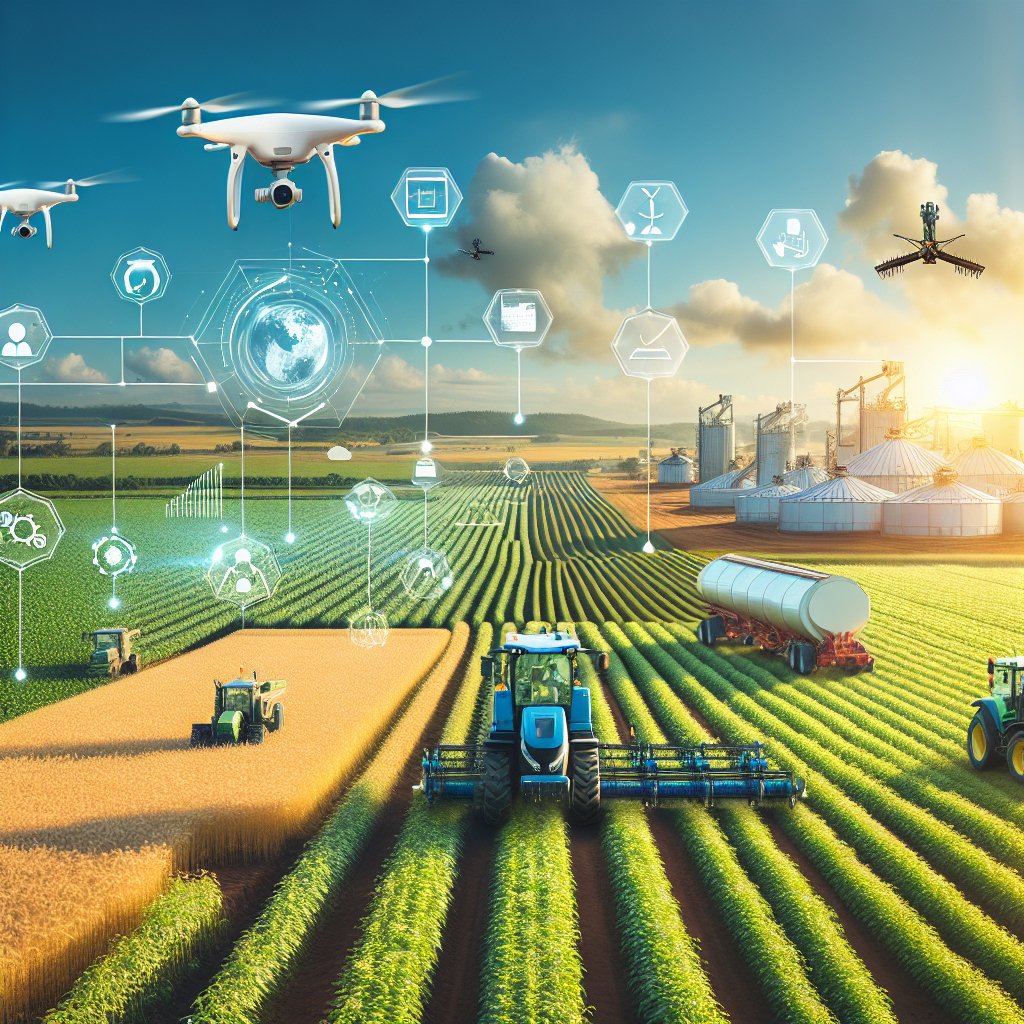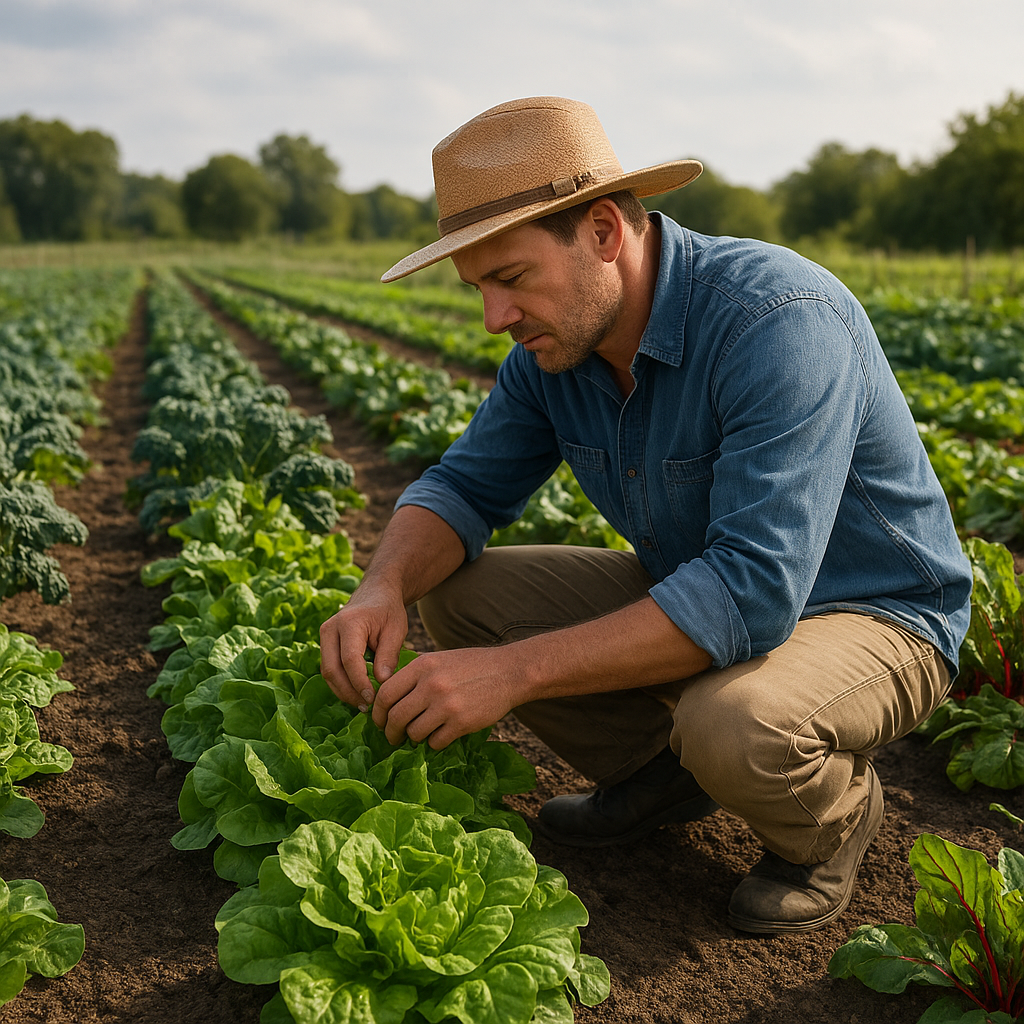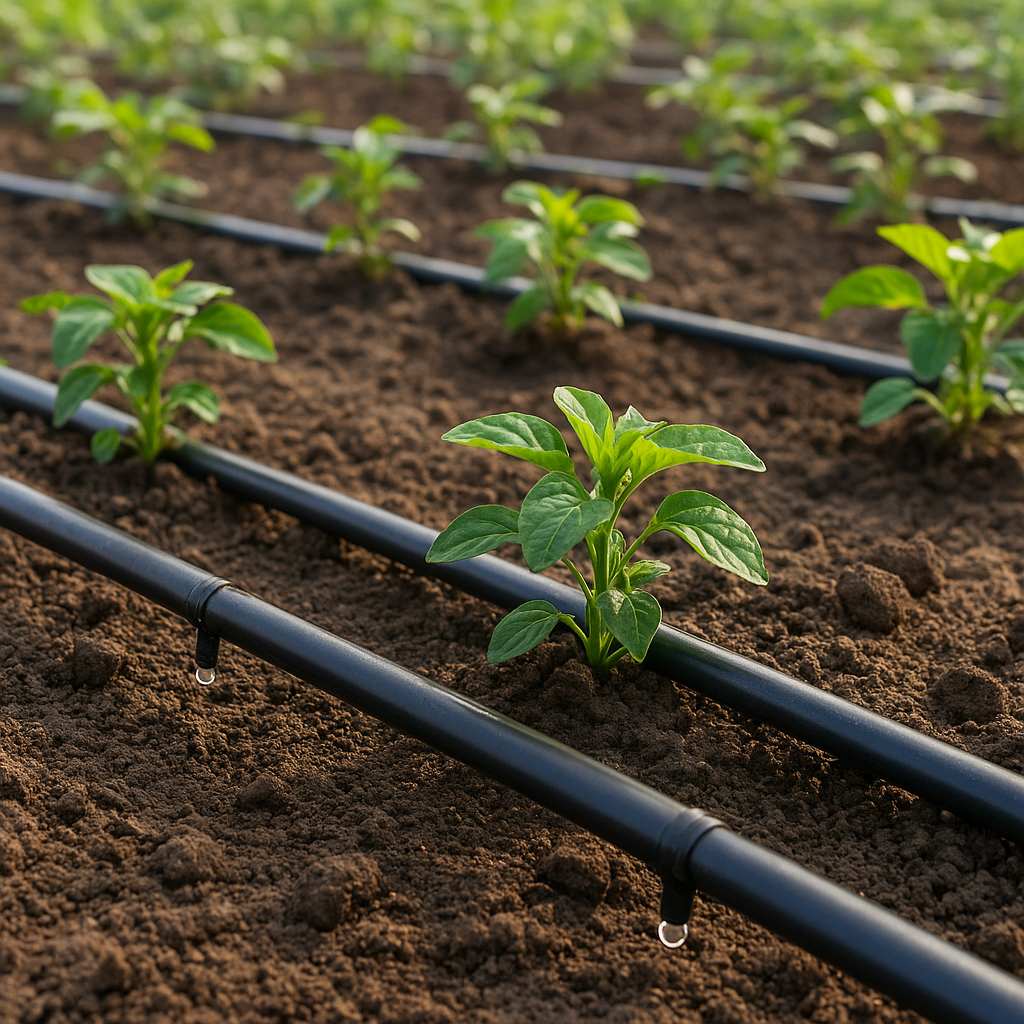How technology is reducing waste in farming supply chains is a critical topic in the modern agricultural landscape. As the global population continues to grow, the demand for food increases, putting immense pressure on farming practices and supply chains. The integration of technology into these systems is proving to be a game-changer, helping to minimize waste, enhance efficiency, and promote sustainability. This article explores the various technological advancements that are transforming farming supply chains and the significant impact they have on reducing waste.
Understanding Waste in Farming Supply Chains
Waste in farming supply chains can occur at various stages, from production to distribution and consumption. Understanding the sources of this waste is essential for implementing effective solutions. The primary types of waste include:
- Production Waste: This includes crops that are not harvested due to market fluctuations, pest infestations, or adverse weather conditions. Farmers often face challenges in predicting market demand, leading to overproduction and subsequent waste.
- Post-Harvest Losses: After harvesting, fruits and vegetables can spoil during transportation or storage. Poor handling practices and inadequate storage facilities contribute significantly to this type of waste.
- Distribution Inefficiencies: The logistics of transporting agricultural products can lead to waste if not managed properly. Delays, improper storage conditions, and lack of real-time tracking can result in spoilage.
- Consumer Waste: Even after products reach consumers, waste can occur due to over-purchasing, improper storage, and lack of awareness about expiration dates.
Addressing these issues requires a multifaceted approach, and technology plays a pivotal role in creating more efficient and sustainable farming supply chains.
Technological Innovations in Farming Supply Chains
Several technological innovations are currently being implemented in farming supply chains to reduce waste. These advancements not only enhance productivity but also promote sustainability and environmental responsibility. Some of the most impactful technologies include:
1. Precision Agriculture
Precision agriculture utilizes data analytics, GPS technology, and IoT devices to optimize farming practices. By collecting and analyzing data on soil conditions, weather patterns, and crop health, farmers can make informed decisions about planting, irrigation, and harvesting. This targeted approach minimizes overuse of resources and reduces waste significantly.
- Soil Sensors: These devices monitor soil moisture and nutrient levels, allowing farmers to apply water and fertilizers only when necessary. This not only conserves resources but also prevents runoff and pollution.
- Drones: Drones equipped with cameras and sensors can survey large fields quickly, identifying areas that require attention. This helps farmers address issues before they escalate, reducing crop loss.
2. Supply Chain Management Software
Advanced supply chain management software enables farmers and distributors to track products in real-time, from farm to table. This transparency helps identify inefficiencies and areas of waste within the supply chain.
- Inventory Management: Software solutions can predict demand more accurately, helping farmers adjust their production accordingly. This reduces the likelihood of overproduction and waste.
- Real-Time Tracking: With GPS and RFID technology, stakeholders can monitor the location and condition of products throughout the supply chain. This ensures that products are stored and transported under optimal conditions, minimizing spoilage.
3. Blockchain Technology
Blockchain technology offers a secure and transparent way to track agricultural products from farm to consumer. By creating an immutable record of each transaction, blockchain enhances traceability and accountability within the supply chain.
- Traceability: Consumers can access information about the origin of their food, including how it was produced and transported. This transparency encourages responsible consumption and reduces waste.
- Smart Contracts: Automated contracts can facilitate transactions between farmers and distributors, ensuring that products are sold before they spoil, thus reducing waste.
4. Food Waste Reduction Apps
Several mobile applications are designed to connect consumers with surplus food from restaurants, grocery stores, and farms. These platforms help redistribute food that would otherwise go to waste.
- Food Sharing Platforms: Apps like Too Good To Go allow consumers to purchase surplus food at discounted prices, reducing waste while providing affordable options.
- Donation Apps: Some applications facilitate food donations from businesses to local charities, ensuring that excess food reaches those in need rather than ending up in landfills.
The Impact of Technology on Sustainability
The integration of technology in farming supply chains not only reduces waste but also contributes to broader sustainability goals. By minimizing resource use and enhancing efficiency, these innovations help protect the environment and promote responsible farming practices.
1. Environmental Benefits
Reducing waste in farming supply chains has significant environmental benefits. Less waste means fewer resources are consumed, leading to lower greenhouse gas emissions and reduced pressure on land and water resources.
- Lower Carbon Footprint: Efficient farming practices and reduced waste contribute to a smaller carbon footprint, helping combat climate change.
- Conservation of Resources: By optimizing resource use, farmers can conserve water, soil, and energy, promoting long-term sustainability.
2. Economic Advantages
Implementing technology in farming supply chains can lead to substantial economic benefits for farmers and businesses alike. By reducing waste, farmers can increase their profitability and ensure a more stable income.
- Cost Savings: Efficient practices reduce the costs associated with overproduction, spoilage, and waste disposal.
- Market Opportunities: Farmers who adopt sustainable practices can tap into growing consumer demand for environmentally friendly products, potentially commanding higher prices.
3. Social Impact
Reducing waste in farming supply chains also has positive social implications. By ensuring that food reaches those in need and promoting responsible consumption, technology can help address food insecurity and promote community well-being.
- Food Security: By minimizing waste, more food is available for consumption, helping to combat hunger and food insecurity.
- Community Engagement: Initiatives that promote food sharing and donation foster a sense of community and encourage responsible consumption practices.
Challenges and Future Directions
While technology offers promising solutions for reducing waste in farming supply chains, several challenges remain. Addressing these challenges will be crucial for maximizing the benefits of technological advancements.
1. Adoption Barriers
Many farmers, particularly smallholders, face barriers to adopting new technologies. These barriers can include high costs, lack of access to training, and limited internet connectivity in rural areas.
- Financial Constraints: The initial investment required for technology adoption can be a significant hurdle for many farmers.
- Training and Education: Providing adequate training and support is essential to ensure that farmers can effectively utilize new technologies.
2. Data Privacy and Security
As farming supply chains become increasingly data-driven, concerns about data privacy and security arise. Ensuring that sensitive information is protected is vital for building trust among stakeholders.
- Data Ownership: Clear guidelines on data ownership and usage must be established to protect farmers’ interests.
- Cybersecurity Measures: Implementing robust cybersecurity measures is essential to safeguard against potential threats.
3. Regulatory Frameworks
The rapid pace of technological advancement often outstrips existing regulatory frameworks. Policymakers must adapt regulations to support innovation while ensuring safety and sustainability.
- Supportive Policies: Governments should create policies that encourage technology adoption and provide incentives for sustainable practices.
- Collaboration: Collaboration between stakeholders, including farmers, technology providers, and policymakers, is essential for developing effective regulations.
Conclusion
Technology is playing a transformative role in reducing waste in farming supply chains, offering innovative solutions that enhance efficiency, sustainability, and profitability. By embracing advancements such as precision agriculture, supply chain management software, blockchain technology, and food waste reduction apps, the agricultural sector can address the pressing challenges of waste and resource management. While challenges remain, the potential benefits of technology in creating a more sustainable and efficient food system are immense. As the industry continues to evolve, collaboration among stakeholders will be key to unlocking the full potential of these technological innovations and ensuring a sustainable future for farming.




